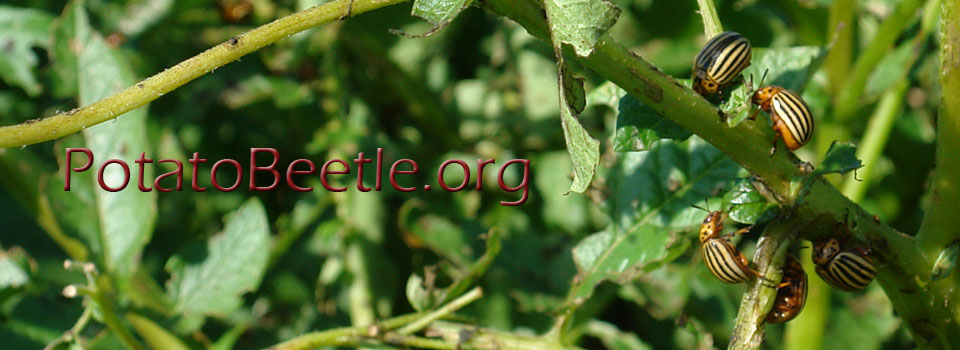Booth E, Alyokhin A, Pinatti S. Insect Science. 2017;24(2):295-302. doi: 10.1111/1744-7917.12286.
Cannibalism, or intraspecific predation, can play a major role in changing individual fitness and population processes. In insects, cannibalism frequently occurs across life stages, with cannibals consuming a smaller or more vulnerable stage. Predation of adult insects on one another is considered to be uncommon. We investigated adult cannibalism in the Colorado potato beetle, Leptinotarsa decemlineata (Say), which is an oligophagous herbivore specializing on plants in family Solanaceae, and an important agricultural pest. Under laboratory conditions, starvation and crowding encouraged teneral adults to feed upon each other, which reduced their weight loss during the period of starvation. However, pupae were attacked and consumed before adults. Injured beetles had a higher probability of being cannibalized than intact beetles. Males were more frequently attacked than females, but that appeared to be a function of their smaller size rather than other gender-specific traits. Cannibalizing eggs at a larval stage did not affect beetle propensity to cannibalize adults at an adult stage. When given a choice between conspecific adults and mealworms, the beetles preferred to eat conspecifics. Cannibalistic behavior, including adult cannibalism, could be important for population persistence in this species.
